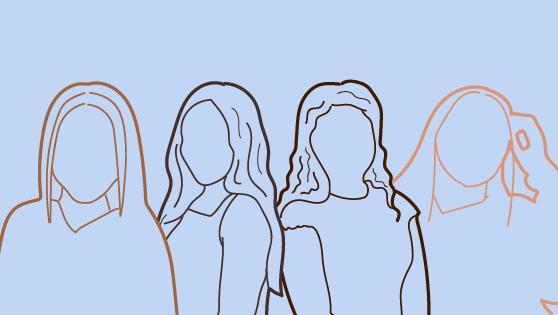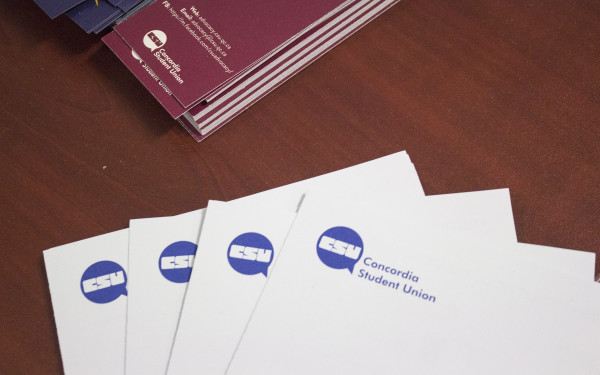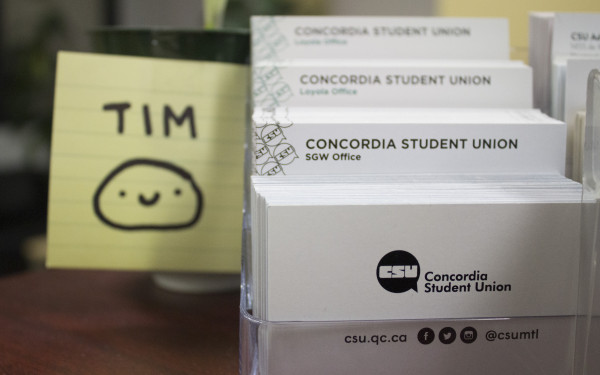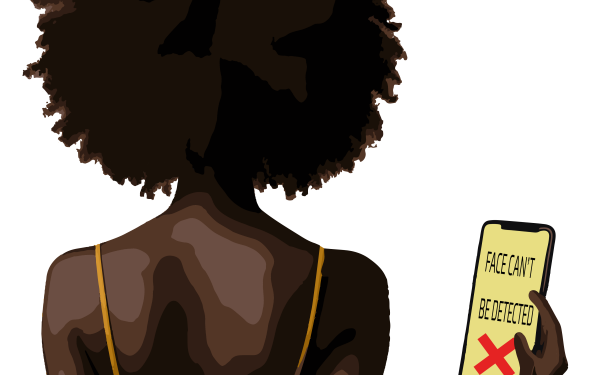Four women at the helm of Concordia’s future Black Student Union
A safe space for Black students in the works
In less than 48 hours, the four students working towards the creation of a Black Student Union at Concordia gathered more than 200 signatures in support of its creation.
The pending BSU attributes the attention they’re getting from undergraduate students to the current Black Lives Matter movement. However, the team trying to create a BSU said they didn’t start the work because of the movement—it was a response to an obvious need and lack of services that catered to Black students at the university.
“A lot of organizations are saying that this is the theme of the year, BLM—but this is not a theme, this is our lives,” said co-founder and first year theological studies student Amaria Phillips.
“When we wake up, we’re Black, when we go outside, we’re Black. When they see us, they don’t see nationality or background, they see the colour of our skin,” continued Phillips.
The team originally wanted to create a Black at Concordia club, but in the absence of an actual BSU, they decided to start the process of forming a Black administration at the university instead.

“It was quite a shock for me,” said Tanou Bah, a first year sociology student. In a school with thousands of students, Bah expected for there to be an organization that caters specifically to Black individuals no matter their ethnic identity, as there are at McGill and many universities in the United States.
According to Phillips, along with the guidance of the CSU, the BSU is planning to become an independent feel-levy, which must be approved by the university. The group then plans to reach out to sponsors and set up a budget for the upcoming academic year.
As stated in the BSU’s letter of intent, their goal is to represent Black students on campus, and serve as the chief liaison between Black students and the university’s administration. The BSU wants to actively support students on racial matters and push for changes that must be made to further support Black students. By doing so, they hope to provide a safe space to discuss, educate, and empower Black lives, and instill a sense of pride in Black culture and heritage.
The BSU wants to serve as an umbrella organization for Black students on campus and, according to their letter of intent, “achieve a common goal through unity and support.” The plan is to get all the clubs and associations who cater to students of the African diaspora under the BSU, rather than the CSU.
Ideally, if the group becomes a fee-levy, the BSU would like to have at least one student from each Black club on their board of directors, in order to include them in important decision making.

The CSU Internal Affairs Coordinator Daniel Amico said he doesn’t think the BSU could become a separate umbrella organization. Currently, the CSU is the only official representative for undergraduate students because they are legally accredited.
“It would have to be a conversation with the Board of Governors, and the Concordia administration,” said Amico.
He explained that becoming a fee-levy with the other clubs’ executives on their board of directors could be a better option.
The four young women want to create a BSU because they know representation is important.
“We are different because we cater to all Black students, so not just one nationality or background. It is more than a club, more than just [hosting] events, it’s an administration that we are setting up,” said Phillips.
Ernithe Edmond, who is studying mechanical engineering, said the reason so many Black children want to pursue athletics as a career is because most of the role models they see through the media are professional athletes—that’s the kind of success they see is accessible.
Speaking from personal experience, Edmond explained that in some neighbourhoods, Black students aren’t exposed to academic success. “When they come from lower-income schools, they encourage students not to finish high school but to go for technical degrees,” she said.
“A lot of organizations are saying that this is the theme of the year, BLM—but this is not a theme, this is our lives.” —Amaria Phillips
Seeing someone who looks like you achieving academic success gives you the extra drive to try your best, because you know it’s possible for someone like you, Edmond explained.
“Representation matters. We want to have fair representation,” said Edmond.
Black representation at the university is also important so students have people to rely on when racist injustices occur.
“There is no way that the BSU would ever disregard a Black individual, because at the end of the day, we are all in this together,” said Bah.
Edmond explained that if there already was a BSU on campus, there would have been a stronger effort from the administration to hire more Black professors and administrators. She said this would help Black people “actually feel safe and included in campus life.”
Looking forward
As this semester will be mainly focused on tying up administrative loose ends, the one big event the BSU plans to host is a Black forum in collaboration with Black student associations and clubs on campus, tentatively at the end of October, or early November.

In order to further engage with the student population, an idea for a podcast is in the works.
Although the BSU is being built completely online, due to COVID-19 restrictions, the co-founders said they’re able to reach more people by being actively accessible through social media.
There was a level of boldness needed for the co-founders to get things in motion, as three out of four of the students are in their first year. In fact, Phillips said the four of them are not the first ones to try to create a BSU at Concordia—however, they are the first ones to see it thus far.
“We could have just thought that nobody is going to listen to us, and our voices are not going to be heard,” said Phillips.
Though because some students are so new, and another is graduating soon, Amico said he’s concerned the group might disband, as he sees that happening all the time.
“We’re really excited with it, we’re really looking forward to what they can do—we are just a little apprehensive,” said Amico. “I think that the momentum is there, students would support this, but you still have to do it through the right channels to really be effective.”

“If the clubs here who have had this big supported structure for decades move over to a brand new fee-levy that doesn’t really know their overall goal, it could become a slippery slope, and it can become dangerous. They would really have to do it carefully, and they would really have to take their time with it,” continued Amico.
Amico recommends becoming a club for the first year, then applying to become a fee-levy after forming a clearer structure, and ironing out the details. “They have to build themselves up, and let people know who they are,” he said.
“The ball is in their court,” said Amico.
Phillips explained the support the four are already getting is encouraging. “No matter what obstacle we have, we are going to really push for this. We really do see a necessity at the school,” said Phillips.
“We are going to make it happen no matter what.”






